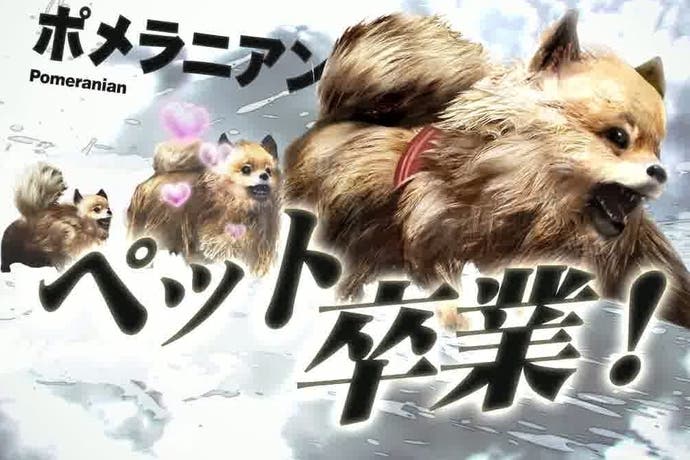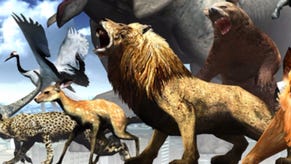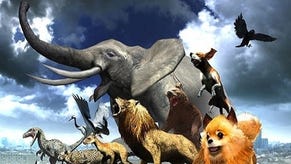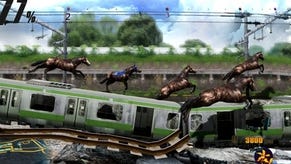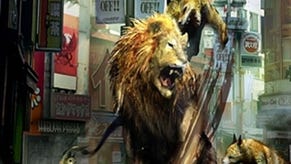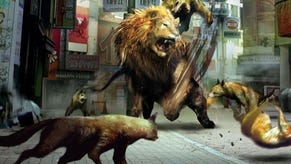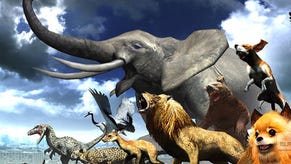Games of 2012: Tokyo Jungle
Animal passions.
It's a dog-eat-dog kind of world out there. Not literally, in the case of Tokyo Jungle: cannibalism is one of the game's few taboos. But the fiery Pomeranian will happily bite his kin to death, even if he's forbidden from chowing down on the furry corpse thereafter. Figuratively then, it's a dog-eat-dog world. Literally? Well, literally Tokyo Jungle is more a dog-eat-cat, dog-eat-deer, dog-eat-hippopotamus, dog-eat-alligator kinda world.
This tenet - eat them before they eat you - is so familiar to the video game devout that these days it passes almost unnoticed as the core message of the medium. From the dawn of video game time we have known to blast the Invaders before they blast us, to swallow the fruit and chase the Pac-Man ghosts back into a corner, to hoover up the health packs before our comrades get to them, to cast the first stone, throw the first punch, make the first headshot. This rule is part of the video game contract, one of the few human pursuits - alongside sport, perhaps - that repels notions of reconciliation or compromise.
But despite the familiarity, Tokyo Jungle manages to surprise by expressing the dog-eat-dog principle in its most unadorned, animalistic sense: removing the humans from modern Tokyo, unlocking the gates to the zoos and seeing what carnal carnage erupts from emancipating the animals. It's a good and fair premise. After all, man has had his turn at stewardship of planet Earth and look at how that's gone. We've choked and plundered and, a few thousand years on, the planet wheezes and staggers from our competitive selfishness. It's a man-eat-world kinda world in here: why not give the animals a shot?
But Tokyo Jungle is no Garden of Eden and it offers no picture of blemishless innocence or comfort. Rather, it's a game revealing nature red in tooth and claw. Your relentless, looping task - almost regardless of whether you choose to play as herbivore or carnivore - is to crush the weak in order to make yourself more powerful so that, in time, you or your offspring may crush the powerful. That arc is common to so many games, but here it's stated with arch-plainness. If it's possible to reduce each video game to a handful of its essential verbs, Tokyo Jungle offers the three-way percussive punch: Eat, Grow, F***.
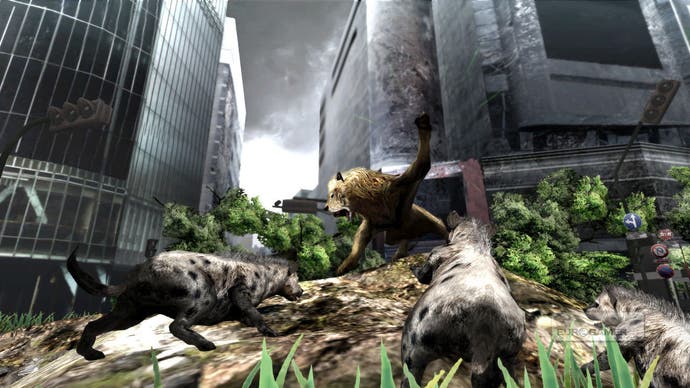
Never has the circle of life been represented in a game with such efficient brevity and focus. Your story goal is that of all living creatures: survive and ensure the survival of your progeny. Therein lies its great power. Just as Minecraft's rudimentary blocks and kindergarten-sketch monsters inspire terror, reminding us of the mortal dread of a shelter-less night, so Tokyo Jungle taps into the old part of our brain, the ghost cells that remember what it is to shiver under a tree, mad with hunger and an urgent, swollen desire to procreate before it's too late.
Tokyo Jungle doesn't only speak to the lizard part of our brains. Man plays his part in the game, one way or another. There's the aromatic dereliction of a post-apocalyptic Tokyo, the game's setting. Our streets are now the animals' streets, and there's a strange sort of connection one feels when settling down to make babies in a disused JD Sports (or Tokyo's high street equivalent) that has to do with a familiarity of scenery, if not familiarity of encounter. There are the presents too, meticulously wrapped boxes tied in red, silk ribbons, esoterically dropped into the game when you defeat some animal boss, or successfully piss your scent all over one city district to claim its ownership. These contain gifts from humans: tins of dog food to stave off hunger, pills to fight the toxicity in the air and, of course, clothing.
This last gift is Tokyo Jungle's strangest. On the surface level, the baseball hats, bikinis, sunglasses and sneakers with which you dress your animal offer typical video game accessorising. The leather vest might offer a few extra defence points, the knitted shoes a more powerful attack and so forth. But these creatures are no pets and as they strut about town in their finery they inspire Orwellian unease. The animals aren't repairing the world of humanity's butchery; they are usurping and replacing humanity, dressing in our clothes, repurposing our stores as boudoirs, playing out the dog-eat-dog principle with the aid of man-gifts from beyond the grave. And in assuming our role and behaviour, slow truths are revealed down on the Animal Farm.
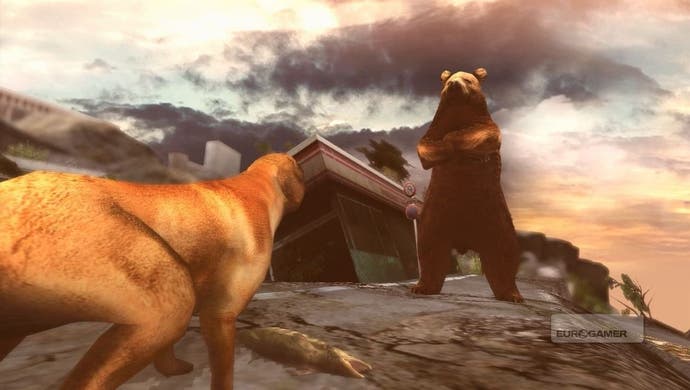
The dog-eat-dog competitiveness is also scratched into the metagame, which pits us against one another in the stark rivalry of the high-score leaderboard. The game isn't so much survival horror as survival score attack: you earn points for each virtual year your animal's lineage survives and so, as in the biological impulse of life, longevity is the only metric that matters. Tokyo Jungle doesn't break leaderboards down by species: rather everyone competes against everyone else. Reckon you can outlast a brown bear by playing as a deer, cringing in the reeds before skittering out to drink from a puddle when nobody's looking? Tokyo Jungle's boundless leaderboard facilitates the rivalry.
As 2012 collapses to an end, Tokyo Jungle is reportedly selling better than almost any other PSN title. It's a curious success for a game that owns none of the supposed mechanisms necessary for mainstream success today. It's a scrappy game in all senses. The offbeat idea is matched by a roughness of execution, its hard edges left unrounded by focus testers. The meta-game - which unlocks a new animal species to play through the game when you pass set criteria - is dull and unwavering, and the rhythms of play are too similar across the different species. One imagines life as a Pomeranian is rather different to life as a lion, yet in Tokyo Jungle these existences are near indistinguishable.
So why the success? Perhaps it's the comedy: the opportunity to dress wild animals as Hollywood pets and giggle at the absurdity. Or maybe the tragedy: the sight of the mighty feasting upon the weak; biting the heads off chicks, repellent yet compelling scenes to the contemporary western sensibility. Most likely, though, it's that we too are hard-wired like these animals to Eat, Grow, F***.
